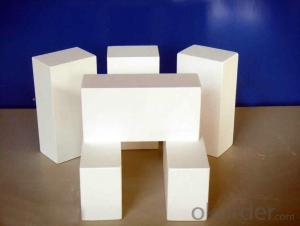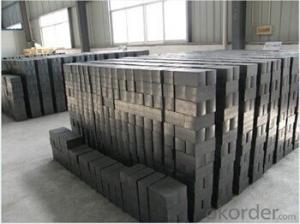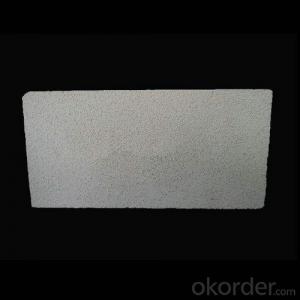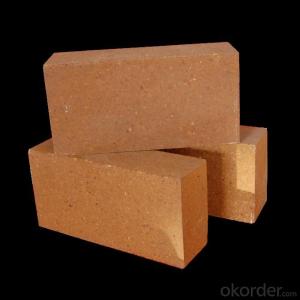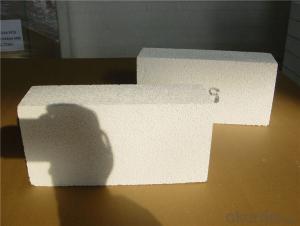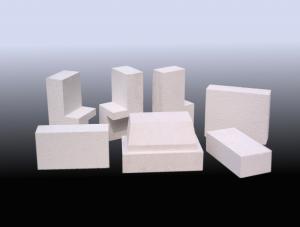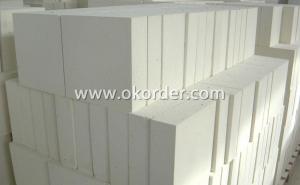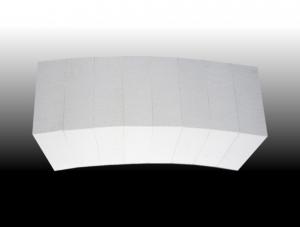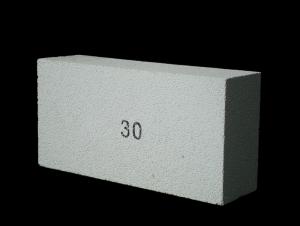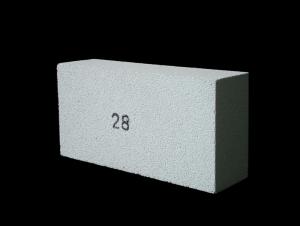Light Dense Mullite Insulation Brick Product
- Loading Port:
- Shanghai
- Payment Terms:
- TT OR LC
- Min Order Qty:
- 1 m.t.
- Supply Capability:
- 10000 m.t./month
OKorder Service Pledge
OKorder Financial Service
You Might Also Like
Thermal Insulation Fire Clay Brick
Refractory brick is a refractory material used in lining furnaces, kilns, fireboxes, and fireplaces.
We provide high quality Refractory Fire Bricks that are used on wide range in the various industries like Cement, Glass and Steel. Refractory Fire Bricks are provided as per the quantity and specifications required by the customers. We provide an extensive range of Refractory Fire Bricks at reasonable prices that depend upon the quantity ordered.
Application
Insulating Fire Brick are used for the lining of converter, alternating current arc furnace, direct Current arc furnace and the ladle slag line, etc.
Company Advantage
(1)Long Insulating Fire Brick manufacture history: 25 years manufacturer
(2)Advanced equipment and good service
(3)Diversification of production standards: ISO ANSI FEPA JIS ASTM
(4)Flexible payment: T/T L/C D/P D/A
(5)Professional marketing team and after-sale service
Insulating Fire Brick main feature:
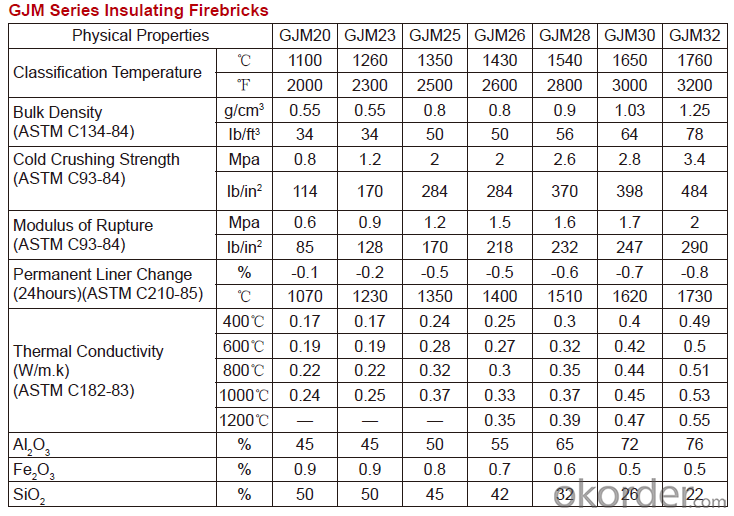
Equipment
1 unit of Ceramic Abrasive (SG Abrasive) pilot production line
2 units of Compact grain Abrasive pilot production lines
1 unit of high-end coated abrasives (abrasive cloth) production line
3 large flexible crushing and sieving lines for grit production lines
6 units of 5000KVA-10000KVA dumping type electric arc furnaces for Brown Fused Alumina fusion
FAQs
Q1 What’s the transport method?
A1 FCL delivery goods with wooden pallet or wooden case by sea; If LCL delivery, must with wooden case; Sometimes need open top, flat rack or bulk cargo.
Q2 What’s the required payment term?
A2 Generally 30% TT as the prepayment, 70% TT before delivery. If need, 100% Irrevocable Letter of Credit or negotiation.
Q3 Which country are our products exported to?
A3 Apart from entire Chinese market, the US, Russia, Japan, Korea, Australia and some Southeast Asian Nations.
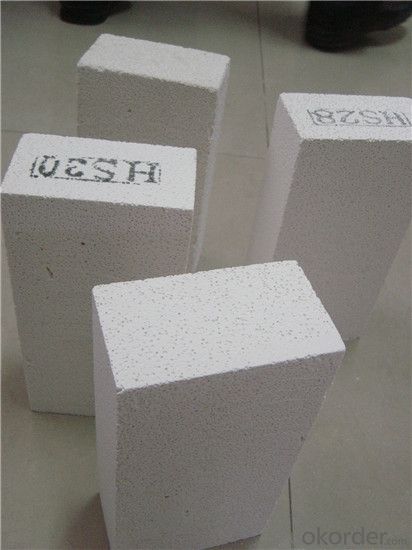
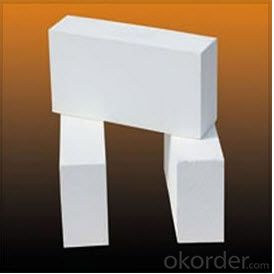
- Q:How does the density of an insulating fire brick affect its performance?
- The performance of an insulating fire brick is heavily influenced by its density. Generally, bricks with higher density provide superior thermal insulation and mechanical strength compared to bricks with lower density. The density of an insulating fire brick directly affects its thermal insulation capabilities. Bricks with higher density have smaller pores and a more compact structure, resulting in better insulation against heat transfer. This means that the brick can effectively resist the transfer of heat, maintaining a consistent temperature within the structure it is used in. On the other hand, bricks with lower density have larger pores and a less compact structure, allowing for more heat transfer and reducing their insulating capabilities. Apart from thermal insulation, the density of an insulating fire brick also impacts its mechanical strength. Bricks with higher density generally have greater structural integrity and resistance to mechanical stress. This means that they are more reliable and durable, capable of withstanding higher temperatures and physical pressures without cracking or breaking. Conversely, bricks with lower density may be more fragile and prone to damage, limiting their performance in harsh conditions. Therefore, when selecting an insulating fire brick for a specific application, it is important to consider its density. A balance must be struck between achieving optimal thermal insulation and mechanical strength. Factors such as the desired level of insulation, operating temperature, and structural requirements of the application should be taken into account to determine the appropriate density of the insulating fire brick for maximum performance.
- Q:Are insulating fire bricks resistant to carbon dioxide?
- Yes, insulating fire bricks are resistant to carbon dioxide.
- Q:Can insulating fire bricks be used for fireplace construction?
- Yes, insulating fire bricks can be used for fireplace construction. Insulating fire bricks are designed to withstand high temperatures and provide excellent insulation, making them ideal for lining fireplaces. They help to retain heat, increase the efficiency of the fireplace, and prevent heat loss. Additionally, insulating fire bricks are lightweight, making them easier to handle and install. Overall, using insulating fire bricks for fireplace construction is a practical choice that can enhance the performance and energy efficiency of the fireplace.
- Q:Can insulating fire bricks be used in high-temperature insulation for aerospace applications?
- Yes, insulating fire bricks can be used in high-temperature insulation for aerospace applications. Insulating fire bricks are made from lightweight refractory materials that have high insulating properties and can withstand extreme temperatures. These bricks have low thermal conductivity, which allows them to effectively reduce heat transfer and maintain the desired temperature inside aerospace components. Aerospace applications often involve high-temperature environments, such as in rocket engines, exhaust systems, and thermal protection systems. Insulating fire bricks can be used in these applications to provide thermal insulation, protecting sensitive components from excessive heat and preventing heat loss to the surroundings. Additionally, insulating fire bricks are known for their excellent resistance to thermal shock, meaning they can withstand rapid temperature changes without cracking or degrading. This property is crucial in aerospace applications where components are subjected to extreme temperature variations during launch, re-entry, or other operational phases. Moreover, insulating fire bricks have lightweight properties, which can be advantageous in aerospace applications where weight reduction is critical for fuel efficiency and overall performance. By using insulating fire bricks, aerospace engineers can achieve effective thermal insulation while minimizing the added weight to the system. Overall, insulating fire bricks offer a viable solution for high-temperature insulation in aerospace applications. Their high insulating properties, resistance to thermal shock, and lightweight nature make them suitable for protecting critical aerospace components in extreme temperature environments.
- Q:Do insulating fire bricks have a low density?
- Yes, insulating fire bricks typically have a low density compared to other types of bricks.
- Q:Can insulating fire bricks be used in the construction of crucible furnaces?
- Yes, insulating fire bricks can be used in the construction of crucible furnaces. These bricks are designed to withstand high temperatures and provide excellent insulation, making them ideal for lining the walls of crucible furnaces. They help to retain heat, reduce energy consumption, and ensure efficient melting and casting processes.
- Q:Do insulating fire bricks have a high insulating capacity?
- Yes, insulating fire bricks have a high insulating capacity. These bricks are designed to have low thermal conductivity, which helps in reducing heat transfer and maintaining high temperatures in industrial applications such as furnaces and kilns. They provide excellent insulation, making them highly effective in conserving energy and reducing heat loss.
- Q:Can insulating fire bricks be used in wood-fired kilns?
- Yes, insulating fire bricks can be used in wood-fired kilns. Insulating fire bricks are specifically designed to withstand high temperatures and provide insulation, making them suitable for use in wood-fired kilns where temperatures can reach extreme levels.
- Q:Are insulating fire bricks suitable for insulation in gas turbines?
- Yes, insulating fire bricks are suitable for insulation in gas turbines. They have excellent insulating properties and can withstand high temperatures, making them an ideal choice for protecting and insulating the components of gas turbines.
- Q:Can insulating fire bricks be used as a base material for casting refractory shapes?
- Yes, insulating fire bricks can be used as a base material for casting refractory shapes. Insulating fire bricks are specifically designed to withstand high temperatures and provide insulation, making them suitable for use in refractory applications. These bricks have low thermal conductivity, which helps to minimize heat loss and maximize energy efficiency. Additionally, their lightweight nature makes them easy to handle and shape, making them an ideal base material for casting refractory shapes. However, it is important to consider the specific requirements and properties of the refractory shapes being cast to ensure that insulating fire bricks are the most suitable choice for the desired application.
1. Manufacturer Overview |
|
|---|---|
| Location | |
| Year Established | |
| Annual Output Value | |
| Main Markets | |
| Company Certifications | |
2. Manufacturer Certificates |
|
|---|---|
| a) Certification Name | |
| Range | |
| Reference | |
| Validity Period | |
3. Manufacturer Capability |
|
|---|---|
| a)Trade Capacity | |
| Nearest Port | |
| Export Percentage | |
| No.of Employees in Trade Department | |
| Language Spoken: | |
| b)Factory Information | |
| Factory Size: | |
| No. of Production Lines | |
| Contract Manufacturing | |
| Product Price Range | |
Send your message to us
Light Dense Mullite Insulation Brick Product
- Loading Port:
- Shanghai
- Payment Terms:
- TT OR LC
- Min Order Qty:
- 1 m.t.
- Supply Capability:
- 10000 m.t./month
OKorder Service Pledge
OKorder Financial Service
Similar products
New products
Hot products
Related keywords
